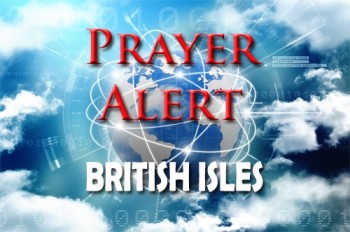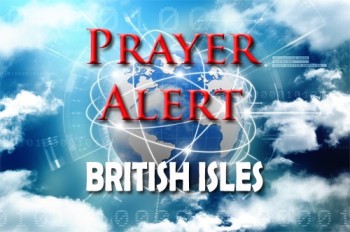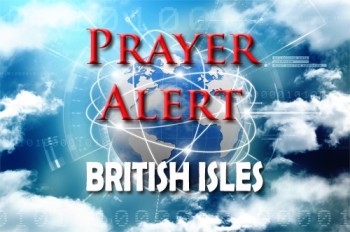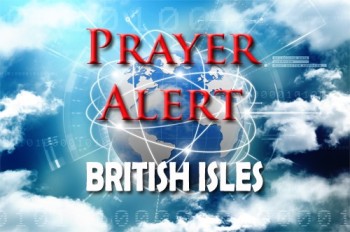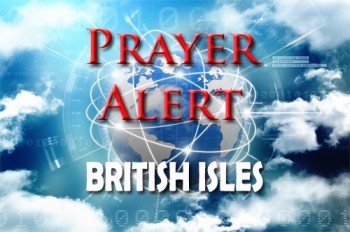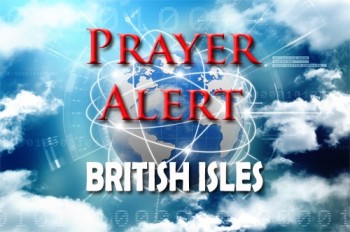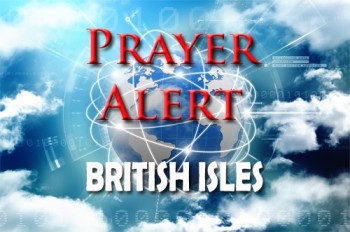Displaying items by tag: Economy
Suriname: first woman president faces challenges
Jennifer Geerlings-Simons has made history as Suriname’s first female president, elected amid political and economic turmoil. The 71-year-old physician and lawmaker was backed by a two-thirds parliamentary vote after inconclusive May elections and growing dissatisfaction with outgoing president Chandrikapersad Santokhi’s austerity measures; his administration has also faced corruption allegations. Geerlings-Simons, who ran unopposed, will assume office on 16 July along with her running mate Gregory Rusland. She inherits a nation burdened by debt, economic instability, and public frustration, but one with the hopeful prospect of offshore oil production starting in 2028. Her administration has pledged to stabilise state finances through stricter tax enforcement, but economists warn of a difficult path ahead, with debt repayments nearing $400 million annually. As Suriname approaches its 50th year of independence, the country (which is one of the continent’s poorest nations, with a rich ethnic tapestry) looks to Geerlings-Simons for leadership in a time of fragile transition and high expectations.
Borrowing costs jump and pound falls on Chancellor's tears
Financial markets reacted sharply this week after Rachel Reeves appeared tearful during Prime Minister’s Questions, after the Government’s sudden U-turn on welfare reforms. Sterling fell by 1% against the dollar, while UK borrowing costs surged in one of the largest single-day moves since the market turmoil following Liz Truss’s 2022 mini-budget. The welfare reversal has left an almost £5 billion gap in Reeves’s fiscal plans, prompting investor concerns about how the Government will balance the books. While Downing Street insisted Reeves retains Starmer’s full support, analysts say the episode highlights market anxiety over potential leadership instability and future fiscal policy. Speculation mounted about possible tax rises in the autumn, though ministers reiterated pledges not to increase income tax, VAT, or National Insurance. Despite the turbulence, experts noted that markets are not as fragile as during the 2022 crisis.
Reeves presents her spending review
Rachel Reeves’ new spending review represents a pivotal moment for the Labour government, aiming to launch a narrative of 'renewal' after a challenging first year. With £600 billion allocated over four years, the review balances significant capital investment with modest growth in day-to-day departmental spending. Major announcements include £14.2 billion for nuclear power at Sizewell C, £15 billion for public transport in the North and Midlands, and a new rail link between Liverpool and Manchester. An additional £113 billion in capital spending will target the government's three pillars: health, security, and the economy. However, this largesse will be offset by tighter controls on daily budgets, with unprotected departments - particularly the Home Office and local councils - facing real-term cuts. Discontent is rising over pressure to reverse disability cuts, lift the two-child benefits cap, and increase winter fuel support. While Reeves insists the rises are funded by tough tax decisions, growing public dissatisfaction may force further fiscal changes by autumn. The Government hopes visible investment projects will reassure voters and build lasting trust. Breaking news: the UK economy shrank by 0.3% in April, a worse result than expected, which Reeves has described as ‘disappointing’. See
USA: Musk calls Trump’s tax bill an abomination
Elon Musk has sharply criticised Donald Trump’s multi-trillion-dollar tax and spending bill, calling it a ‘disgusting abomination’ and condemning the Republicans who supported it. Passed by the House in May, the bill includes expansive tax cuts, which Musk argued will increase the US budget deficit to $2.5 trillion and impose unsustainable debt on Americans. The tech billionaire, who has just ended his short tenure with the Department of Government Efficiency (DOGE), expressed disillusionment with Washington’s entrenched bureaucracy and the resistance to his cost-cutting agenda. He had originally aimed to slash federal spending by $2 trillion, but this was reduced first to $1 trillion and later to just $150 billion. DOGE’S controversial cuts, particularly to humanitarian aid, drew criticism and raised questions about actual taxpayer savings. The White House has dismissed his objections, but Musk, who served the legal limit of 130 days as a ‘special government employee’, urged Americans to vote out the politicians who backed the bill in the next election.
UK economy expands at fastest pace in a year
The UK economy grew by 0.7% in the first quarter of 2025 - its fastest quarterly growth in over a year - beating Bank of England predictions. Growth was driven by strong performance in the services sector, especially retail, IT, advertising, and car leasing. Manufacturing also saw a 1.1% rise, while construction remained flat. Compared to last year, the economy is now 1.3% larger. Export activity also surged, with a 3.5% jump as traders raced to beat looming US tariffs. Despite this strong start, economists warn the momentum may be short-lived due to domestic tax increases and international trade pressures. Some of the early-year growth appears to have been brought forward ahead of rising business costs. While consumer confidence and easing interest rates offer hope, the Bank of England believes underlying growth may still be weak. The government remains cautiously optimistic, pointing to rising wages and a stronger-than-expected recovery, yet future growth may depend on global stability and wise economic governance.
Britain set for a new trade partnership with EU
Britain and the EU are set to formalise a new strategic partnership to strengthen trade ties and present a united front against Donald Trump's global tariff agenda. A leaked draft declaration, dated 25 April, affirms a mutual commitment to ‘free and open trade’ and to maintaining global economic stability. The agreement will be signed at a UK-EU summit on 19 May, marking a key moment in post-Brexit relations. Meanwhile, the Government is engaged in separate negotiations with the USA, aiming to soften the impact of existing tariffs - currently 10% on UK goods and 20% on EU exports. US press secretary Karoline Leavitt said that talks are ‘moving in a very positive way’. Rachel Reeves met with US treasury secretary Scott Besent last week, emphasising that both UK-EU and UK-US trade relationships are vital. Despite Trump reportedly viewing the 10% UK tariff as a minimum, British officials remain optimistic about securing a mutually beneficial deal.
Pressure builds on UK finances as Reeves pushes for US trade deal
The Government borrowed £151.9 billion in the year to March, up £20.7 billion from the previous year, raising concerns about the nation’s financial stability. The figures, revealed as Rachel Reeves visits Washington to negotiate a trade deal with the USA, come amid mounting pressure to cut public spending or increase taxes in order to meet her strict borrowing rules. Reeves has insisted that borrowing will not fund daily spending, but economists warn that sluggish growth, rising interest rates, and looming US tariffs could force her hand. Economists predict tax hikes may be necessary, especially if a trade agreement with the USA cannot be reached. Meanwhile, the IMF downgraded the UK’s 2025 growth forecast from 1.6% to 1.1%, citing inflation, borrowing costs, and trade disruptions. Despite higher tax revenues, debt interest rose to £4.3 billion in March, the highest since the 1960s. Both political and economic leaders are scrutinising every area of government spending, while critics blame the borrowing spike on poor fiscal management and short-sighted policies.
Raw materials arrive to keep British Steel furnaces burning
A critical shipment of raw materials has arrived in the UK to keep British Steel’s blast furnaces in Scunthorpe operational. Following the breakdown of talks with Chinese owner Jingye, the UK government intervened, securing coking coal and iron ore from the US and Australia to prevent furnace shutdowns and potential irreparable damage. This action has brought 'huge relief' to workers and offered renewed hope for the plant’s future. British Steel is the UK’s last producer of virgin steel - vital for national infrastructure, defence, and the economy. Nearly three thousand jobs were at stake, and the government passed emergency legislation to secure operations while working on future ownership plans. Concerns mounted when Jingye ceased raw material orders and began selling existing supplies. Government ministers and union leaders stress the strategic importance of maintaining domestic steel production. Meanwhile, tensions with Beijing have escalated, with warnings that foreign ownership of essential industries must be carefully scrutinised. As the furnaces stay lit, questions remain about long-term stability and national control over vital infrastructure.
Household bill rises hit single parents hardest
As April begins, families across the UK face steep increases in household bills—including energy, water, and council tax—placing a particular strain on single parents and low-income households. Citizens Advice warns that millions are already at breaking point, with many spending over 40% of their post-housing income on essentials. Stories from struggling families highlight how even full-time workers are forced to take extra shifts or skip family time to make ends meet. While the minimum wage and some benefits are rising, many say it’s not enough to offset the rising cost of living. Suggestions to save money include switching service providers or seeking council tax reductions. Political leaders remain divided on solutions, while families urge for lasting support in the face of mounting financial pressure.
World leaders react to Trump’s new wave of tariffs
Donald Trump’s announcement of a universal 10% tariff on all imports into the USA, beginning on 5 April, has sparked global alarm. An additional wave of steepened tariffs on approximately sixty nations, including China and EU countries, begins on 9 April. Trump claims the move will revive American manufacturing, calling it overdue payback for unfair trade practices. However, international leaders warn the tariffs will spark economic turmoil and a potential global trade war. Ursula von der Leyen called it a ‘major blow’, while China, facing a 54% total tariff on some goods, promised ‘resolute countermeasures’. Allies like the UK and Australia have urged restraint, while others, such as Brazil and Canada, plan reciprocal actions. Japan, Taiwan, and South Korea also condemned the move. Trump’s tariffs have rattled long-standing allies, confused diplomatic partners, and raised fears of escalating economic isolation. Critics argue that US consumers may bear the burden, with higher prices and increased global instability looming. For an opinion about what a huge gamble Trump is taking, see

